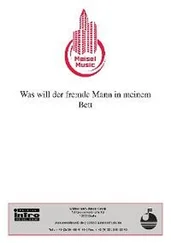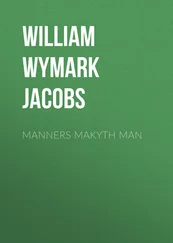Her introduction to Mission could have been more graceful. On her first day, in a hemisphere of grad students, she offhandedly remarked that the quality of the prose in Phenomenology of the Spirit was no better in the original German, but still wasn’t as mind-numbing as deejaying five nights a week. She was just angling her plumage in the sun, but they heard deejay and her comment met with silence. No one heard the gratitude. She wanted to add that she loved it here in the cloisters, but just walked away. And from that moment on, most of her program labeled her conceited and potentially a weak scholar; a handful of guys referred to her as Deejay Stevie. She tried to be good humored about the sobriquet. Word must have reached the professors because they began squinting whenever she spoke up in seminars. Given time, the work would win out.
Kelp bulbs at her toes. She picked her steps carefully, thinking she might have heard somewhere that kelp is poisonous. She stretched her neck until her shadow darkened the lace ribbon of a surging wave. She imagined him doing something virile, scooping up the ocean and gargling the sea.
The horizon was navy corduroy, a steady swell of waves holding more and more of their breath. She set her sandals on the black rocks. The rocks were a paradise for the shore crabs dodging barnacles and darting through the glistens. She curled her toes and whisked her feet a few times in a cold pool on the rock, then stepped into her sandals and climbed up the cliff to the house.
The screen door squawked on its rusted hinges. She wiped her feet on the bristle mat then dipped them in the blue plastic bowl of warm water she’d filled earlier. Inside, shadows from the blinds plaited the floor slats. The house was warmer than when she left it. Beams of light pulled to unfinished wooden trim, bent as if by magnets.
Her doubts, she was okay with. But she hoped he left his doubts in Basel. She felt like a little girl waiting for a total eclipse, holding her little pinhole device — not sure how the contraption was supposed to work, but trusting that it would.
She sat on the tatami mats in the den combing the frays, watching rushes catch sun. In slants of light, rare colors visible: soap-bubble green and cyan. His Post-it note, which she peeled from the pencil-marked doorframe of the study and stuck to the forehead of her collected Auden, now curled up into the light from the arm of the sofa. The note had been a surprise, a reminder that she wasn’t the first person he’d left.
But today he was coming home.

He looked for her as soon as he was in the terminal. If anyone would know to ask for a gate pass, it was her, which meant she had something else planned. On the other side of customs, baggage claim, and security, he scanned the crowd. She wasn’t there. But still he smiled. He had always wanted to clear customs and see a driver holding a card with his name. There it was: OWEN BURR. The driver, wearing gloves and a cap, was initially taken aback by Owen’s height. Closer, he thought the young man was more skeletal than advertised and had trouble believing that his passenger arrived with no luggage, just a white plastic sack.
Owen swung the sack into the backseat of the towncar, four jewel cases rattling and the November issue of SURFER magazine sliding free, and stretched out on the black leather seats. He kicked off his shoes and rubbed his arches on the carpeted center hump. The driver had taken off his hat. He looked at Owen in the mirror.
— You have enough room back there, man? I’m guessing those long-haul flights are hard on the knees.
Owen agreed.
— You came in from Iceland?
— I did.
— Short vacation?
— I’ve been in Europe awhile.
— I did a Europe trip when I was your age. Hostels. Foreign girls. Rome. Did you make it to Rome?
— Almost made it to Athens.
He dangled the city’s name in front of the driver to see if it would get a response. Nothing. Apparently his dad wasn’t an election issue after all.
He lowered the window and let the salt-stained wind sculpt his fingers. The sun warmed his cheek and the back of his hand. Like a magician dancing a coin over his knuckles, he played with the different weight of the California air, trying to have faith that she would be there and that this was right. But he had been losing memories of her like a tree losing its leaves — he was a little colder, less capable of transforming air by fixing the sky, less green against the clouds.
They pulled up to the Burrs’ house. His hands were sweating. He thought of asking the driver to honk a few times, but decided to walk around to the garage.

Earlier in the week had been perfect: rain running down the wooden eaves and crinkling off the stepping stones, every hundredth drop heavy and snapping with the suddenness of a plastic bottle refinding its form. She initially thought the sharplined eaves and the total absence of curvature inside the house would fence her rounded thoughts, wasting space, like a circle inscribed in a rectangle. Instead, she imagined the house harnessing the flood outside. The lines became chutes for rain to weave back and forth. Every bookshelf a channel where water rushed, then dropped a level, then rushed back the other direction. She still saw the run of flumes and the home now had the humid quiet of a forgotten garden. Today’s shadows were dry. She looked at the light fringes of her outstretched hand, the penumbra a memory of touch.
She thought she would wait for Owen in the master bed, maybe at the top of the stairs, make him open a few doors and call her name. Her deliberations vanished when she heard the car idling outside. She walked downstairs to the front door then saw him heading around to the garage and was there to meet him in the laundry room when he opened the door.
She had a few wry comments ready for this moment, but when she saw him her arms simply shot around his neck.
Joined lips joined laughs and they wove away.
He was worried that his return would mean gluing the leaves back on branches, his trembling fingers guessing at depth, holding each memory in place until it dried and was reattached. Instead, everything shot back at once, a live crown of memories: the shadow of her pulled-back hair just behind her ear, her almost hidden smile when she was being serious, the insistence this was serious whenever she laughed, her searching timbre, the skipped beat of each quick reply, skimming fingertips on his collarbone before she collapsed at his side, her breath against his eye, the voltage of her softness, the first beads high on her forehead, her hair falling over her left shoulder every time she let it down, her chin to her chest and her hair as a veil, first her veil then covering them both, curling then stretching awake with arms over her head in a dive, ordinary smells like soap and skin, the trust in her eyes and how she smiled when she watched it make him buckle, her warmth to his touch, clasped hands unclasping and rippling wrist and arm, the windmills of Nijmegen, Netherlands, the city where they parted.
The memory of their meeting, drawn on a transparency and sealed in a manila envelope, waited on the nightstand. Three corners with molar bites of travel, one corner beaked up like a paper swan.
She saw him looking.
— We could open it. And retrace Berlin. I found the projector in the garage and it works. But the Gaskins have planned a homecoming reception. And he’s been implying that he has news.
Owen was too indebted to protest. She traced his rack-ribbed chest. He imagined her hearing xylophone notes, sometimes singular, sometimes paired, as the mallets of her first two fingers percussed his side. She listened, a finger suspended for a second then finding the next rib. He sat up, resolved:
Читать дальше













